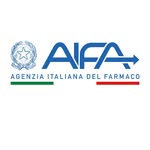.png) Agenzia Italiana del Farmaco
Agenzia Italiana del Farmaco
Meeting from the Pharmacovigilance Risk Assessment Committee (PRAC) - Meeting from the Pharmacovigilance Risk Assessment Committee (PRAC)
Meeting from the Pharmacovigilance Risk Assessment Committee (PRAC)
Meeting highlights from the Pharmacovigilance Risk Assessment Committee (PRAC) 7-10 March 2022.
COVID-19 Vaccine Janssen: small vessel vasculitis added as a side effect
EMA’s medicines safety committee (PRAC) has recommended that small vessel vasculitis with cutaneous manifestations should be added to the product information of COVID-19 Vaccine Janssen as a possible side effect of unknown frequency.
Small vessel vasculitis can be caused by viral or bacterial infections as well as by medicines and vaccines. Generally, manifestations of the disease spontaneously resolve over time with appropriate supportive care.
Spikevax: new warning for flare-ups of capillary leak syndrome
The PRAC has recommended that a warning for flare-ups of capillary leak syndrome (CLS) should be added to the product information for the COVID-19 vaccine Spikevax.
CLS is an extremely rare, serious condition that causes fluid leakage from small blood vessels (capillaries). CLS is frequently related to viral infections, some blood cancers, inflammatory diseases and some treatments.
The Committee concluded that there was insufficient evidence to establish a causal association between the two vaccines and the onset of new cases of CLS. However, the PRAC recommended the inclusion of a warning in the product information for Spikevax to raise awareness of the potential risk of flare-ups among healthcare professionals and patients.
Healthcare professionals should be aware of the signs and symptoms of CLS and of a possible risk of flare-ups in people with a history of CLS. Vaccinated individuals with a history of CLS should consult their treating physician when planning their vaccination.
Dexmedetomidine: Increased risk of mortality in intensive care unit patients aged 65 years and less
As part of its advice on safety-related aspects to other EMA committees, the PRAC discussed a direct healthcare professional communication (DHPC) containing important safety information for dexmedetomidine.
Dexmedetomidine is a medicine authorised for light sedation (a state of calm or feeling sleepy) of adult patients in ICUs, allowing the patient to stay awake and respond to verbal stimulation for diagnostic or surgical procedures.
SPICE III study was a randomised clinical trial comparing the effect of sedation with dexmedetomidine on all-cause mortality (deaths from any cause) with the effect of usual standard of care in 3,904 critically ill adult ICU patients in need of mechanical ventilation. The study showed no difference in the overall 90-day mortality between dexmedetomidine and alternative sedatives (propofol, midazolam). However, dexmedetomidine was associated with an increased risk of mortality in patients aged 65 years and less, compared with alternative sedatives.
Published on: 14 March 2022







